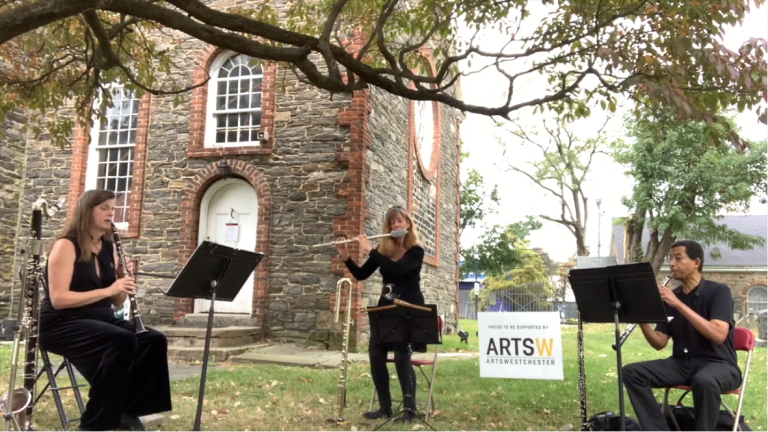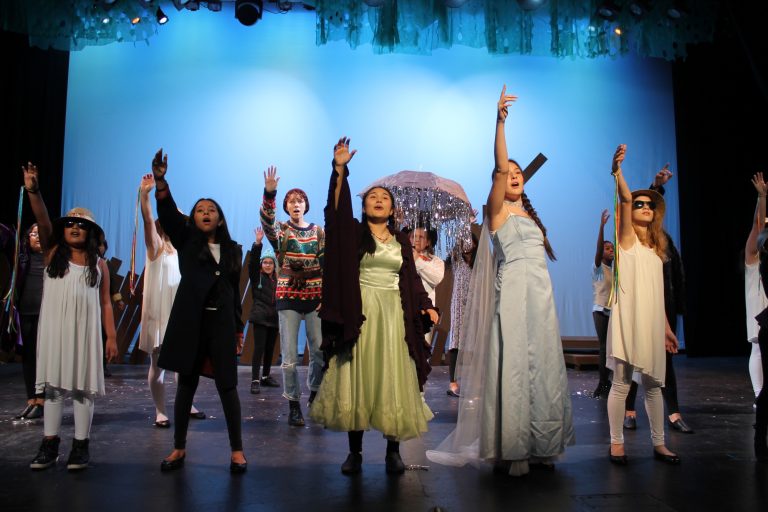A Q&A with John Scofield and Joe Lovano
[Editor’s Note]: For this ArtsNews interview, we asked jazz musician and composer Andromeda Turre to sit down with two jazz legends – guitarist John Scofield and saxophonist Joe Lovano – who will take part in a collaborative performance on September 8 during this year’s JazzFest White Plains (Sept. 6-10). Audiences will have the opportunity to catch one or both of two sets at ArtsWestchester’s intimate gallery space.
JazzFest White Plains, co-organized by ArtsWestchester, White Plains BID and the City of White Plains, and presented by Montefiore Einstein, is a five-day festival of free and affordable jazz performances taking place throughout downtown White Plains.
Turre caught up with Scofield and Lovano in Katonah to discuss their careers and upcoming performance:
On September 8, JazzFest White Plains will present an extraordinary musical collaboration between John Scofield and Joe Lovano that’s been over 50 years in the making. I recently had the privilege of sitting down with these two maestros to dive into the magic of their collaboration and receive wisdom and insight about jazz and beyond.
Andromeda Turre [AT]: We are going to start with where you met, at Berklee College of Music in the early 70s. At that time, jazz was taking a different direction creatively. Did that shift your expectations of what a career in Jazz might have looked like for you?
John Scofield [JS]: Not really. When stuff is changing around you, you’re just kind of going with it, and I guess stuff is always changing. That was a really great time for me because when I went to Berklee, like Joe, I was 18 and it was so great to be in Boston where there was so much Jazz happening – meeting guys like Joe at the Jazz Workshop [music venues], it was an exciting time.
Joe Lovano [JL]: We started to play together and hear each other in different settings. Going there [Berklee] and having a chance to study with people like Gary Burton, John LaPorta, Herb Pomeroy, Joe Viola, Andy McGhee – people that you knew about who played with Bird [Charlie Parker] and played on the scene…my first semester, right out of high school in ‘71, was Gary Burton’s first semester teaching. He followed Charlie Mariano, right John?
JS: Yeah. We went [to Berklee] to hang out with the greats, which we did. And we got to know Gary [Burton] really well. I had two roommates that played bass and drums, and we had a set of vibes in the apartment, and Gary would come over and play with us while he was waiting for traffic to get better to go to his suburban home. I can’t tell you how lucky I was. And like Joe said, the older guys that were teaching at Berklee were really as good as you could get. Herb Pomeroy and that gang, John LaPorta…they weren’t just teachers, they were great, great improvisers and players and arrangers. They were from that previous era, the real bebop era. Then in the ‘70s, free jazz and rocking out, funk, all that stuff was happening.
AT: Were they teaching you that or did they stick to the more “traditional” Jazz?
JS: [They stuck to] traditional. My theory is, you can learn music but you can’t teach it. You can teach beginners, you can teach what music is – the theory of music – but after that, you’re on your own. I was getting real fundamentals at Berklee, because I needed to know about the cycle of fifths and stuff. And as far as the new styles, we got that just by going to the Jazz Workshop and checking out Miles [Davis] and Keith Jarrett and these incredible groups that we heard. And then we would get together and try to play like that.
JL: Being in Gary’s ensemble, he was bringing in music that he was recording. We didn’t play famous jazz standards; we played soon-to-be famous jazz standards that Gary was playing in his band like Steve Swallow tunes, Carla Bley’s music…
JS: Chick Corea and Keith Jarrett, too. These were original tunes that Gary hadn’t even recorded yet, but we got to learn them and play them with him.
JL: Return to Forever came and played at the [Jazz] Workshop, their first record with 500 Miles High. We heard those right when those records came out and heard the bands play. Miles’s band with Jack Dejohnette, Keith Jarrett and Gary Bartz…I heard those cats play and create music like that. And you want to talk about real jazz. What’s real jazz? Real jazz is creative, improvised music. It’s not recapping what other people played. These cats were really playing with the soulful spirit rhythm about life and music. And those were the cats I wanted to play with. And the first time John and I really played together was, I remember, John was playing in Harvard Square with a quartet, and a friend of mine who I was roommates with, Ron Smith, was a vibes player, so I brought my horn. I ended up sitting in. That’s when I first played with John. And we started our musical dialogue together. That was 1972 or something, right?
JS: Yeah
AT: You guys have an energetic connection, where it’s almost like you don’t need to talk about it. You guys get into, like, a flow state that’s really…synonymous, I guess – from playing together for so long, perhaps?
JS: Yeah. I think it’s just, the chemistry is there. I mean, Joe and I haven’t ever had to talk about it. And I think Joe and I played well together the first time we ever played together. Because we’ve got the same kind of music and ideals and music. And you know, we can play and it’s just right from the beginning, without even talking about it. we go for it, you know, and it just seems to be there.
AT: What do you love about playing together?
JS: I just love to hear him play. I love to comp behind him, I love to play with him. I love to play after him, before him, you know, when he solos. He inspires me. And we’re lucky, we get to play with great rhythm sections. This time in White Plains, we’ll have Bill Stewart on drums and Ben Street on bass. I know we have the same frame of reference, very similar frame of reference. So we just play, you know.
JL: There’s always a lot of feeling in John’s playing. And we both developed through the years harmonically and developed a melodic rhythmic concept. And what keeps us really inspired is that we’ve been inspired by folks that were inspired. And that created music. And I think our relationship through the years has just been about trust and love. And the bands that we’ve both been a part of since we met in the early ‘70s. All of the different gigs that we’ve done, not together…we followed each other, listening to the art of each other’s world of music. When John got the gig with Miles Davis. I had the biggest party in my loft. Ah, yeah. And had a jam session celebrating John getting that gig with Miles.
AT: That’s a good friend.
JL: Well, he wasn’t there. He was on the road with Miles.
AT: That’s hilarious. You threw a party for him and he wasn’t there?
JS: It’s because of this: we are friends, and also it was our thing. We had guys that we knew we’d known really since we were teenagers, some of them, and we’d all moved to New York. And we’re all trying to “make it”.
JL: Yeah. There’s a community that we were a part of then. We realized how blessed we were, and still are. And I think our communication as players together speaks to that, you know. I joined John’s band in 1989. And it was an amazing moment. For over four years, we recorded all kinds of music. John is one of the most inspired composers, man on the road, or wherever – he’s always bringing in new music. When we toured together, during that four years, from ‘89 or so, our repertoire just developed all the time. John would bring in tunes, like I do, at soundcheck. We were developing a sound as a band, during the soundcheck playing and exploring something that we never played before. And man, then that evening, stretch out and really explore it, you know, he was bringing in tunes like that all the time. And I’ve done that on the road, too. You write a lot when you’re touring and inspired by the nights before, and performance ideas start to really happen. And yeah, there’s a real magical thing that happens about that when you’re on the road together too, you know – not just at home trying to try to write a tune or a piece of music, but to really have it have a purpose.
AT: You mentioned developing a sound, can you talk a little bit more about that?
JS: Joe and I played with one of the greats of jazz, Charlie Haden. He said a really great thing. It’s like, you already have your own sound. Everybody has their own sound. When your friend calls you up on the phone, you hear one voice – one word or two words, and you know it’s them. Because they have their own sound. We have our own sounds; we just have to let it come out.
JL: Yeah, ain’t that the truth? There’s two parts of your sound, for me. It’s your tone quality, and how you can shape your tone with different players, you know, to play with an articulation and certain quality that blends. Like when I play with John, there’s a tone quality in our approach together. And John man, his tone quality is so beautiful. It’s so dynamic, and powerful. You know, and when we play a theme together, it’s like alright, I’m playing with John Scofield. He’s playing guitar, but he phrases like a trumpet player, and a saxophone. You know, that makes me try to play with a certain quality of a guitar player. That’s cool. And we meet in the middle there, I love it. It’s kind of crazy, right?
JS: It’s crazy. And it’s about listening and blending, you know? And being open. I think it’s the thing that separates the men from the boys. And it’s something that to the listener, they might not be aware of – it’s all jazz, or whatever – but you know what’s going on. When you play with people who really listen, it just…it has a chance to be special — the music — and without it, there seems like there’s no chance, you know?
AT: Yes, absolutely. I want to thank you for taking the time out of your day to talk with me. Your insight into jazz — where it was, where it is — has been incredible. I have one last question for you, where do you hope the future of jazz is going?
JS: I think everything’s always changing, that we’ve noticed that about life, right? And I hope, you know, Joe and I got to meet these older giants and talk to them and absorb from them. And we loved it. And I know there are young musicians out there, and it just keeps going and those people love great music. They’re human and human beings, understand great art, and it speaks to them and they may be younger and have a whole different frame of reference, which the younger generations do – but still, the good stuff is really great. So my hope is that it keeps evolving and that AI doesn’t put us all out, you know. AI can’t swing.
JL: I think humans are looking for something. A lot of us are really looking for inspiring art, you know?
AT: Yeah. And that human connection is something that AI can never have.
JL: Yeah. Before anyone ever heard of Thelonious Monk, could you have described what that was going to be? In the hands and imagination of the player? I think all of the masters that we love believed in themselves. And you have to believe in yourself and try to create something from within your history. Where are you? What’s your roots, where do you really come from? And when you play from that perspective, that somehow always summons the unknowns. Like Wayne Shorter talks about ‘how do you rehearse the unexpected?’ The future is going to be up to the players that trust each other and themselves, and try to find a direction without copying someone else’s.
For tickets to John Scofield and Joe Lovano’s September 8 JazzFest White Plains performance in ArtsWestchester’s intimate gallery space, visit https://www.eventbrite.com/e/jazzfest-2023-john-scofield-and-joe-lovano-quart-tickets-628584492137.

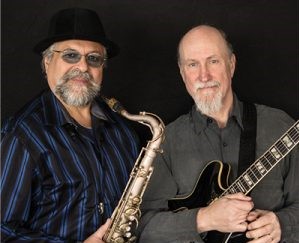
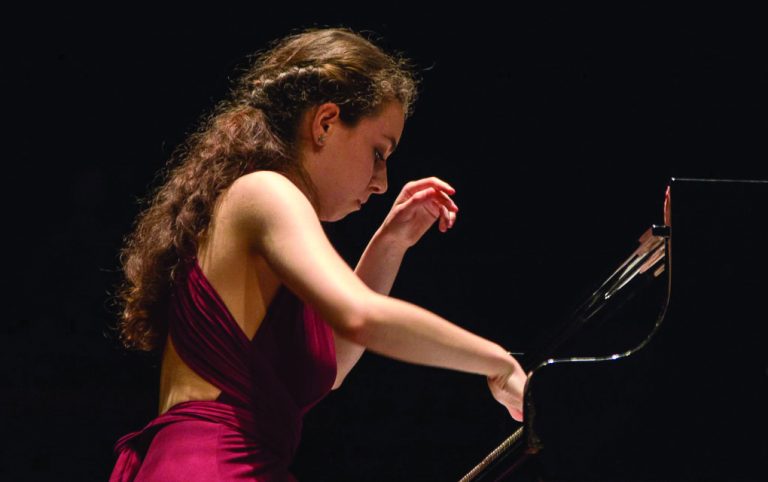
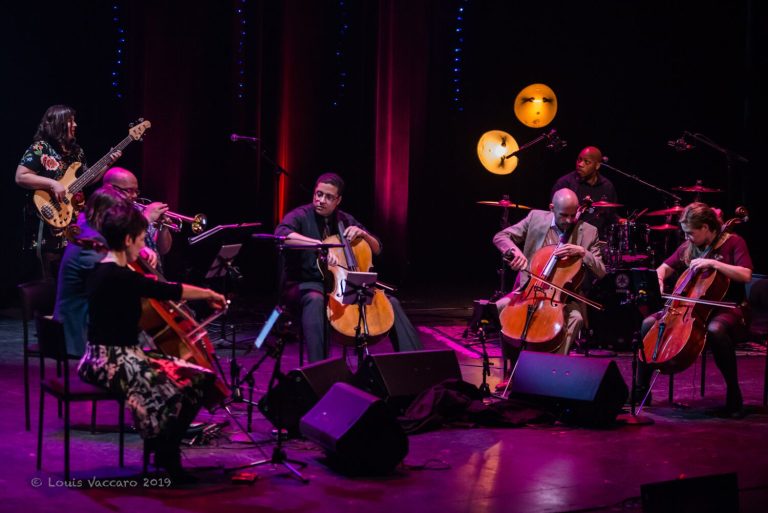
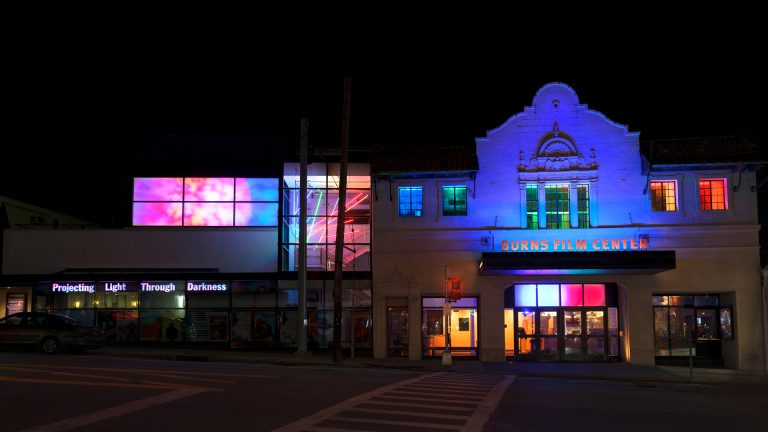
![[Essay] Vijay Iyer Trio: Crafting Presence and Sowing Compassion](https://staging.artswestchester.org/wp-content/uploads/2024/08/L4A7716-color-EDITED-768x512.jpg)
